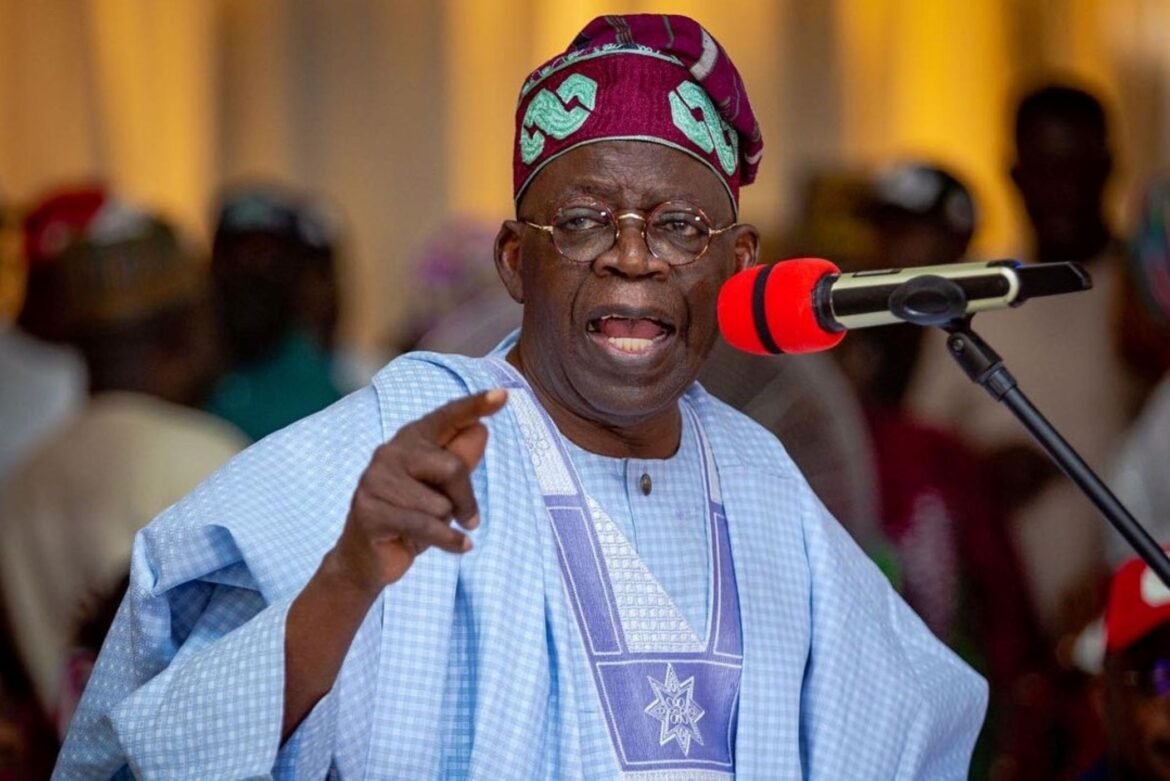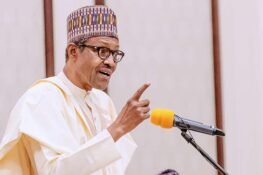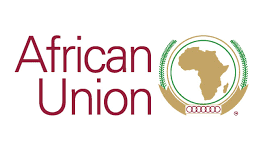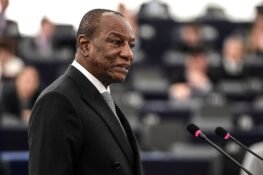Nigeria continues to be deeply polarised since the election that brought President Bola Tinubu to power in 2023.
While his All Progressives Congress (APC) supporters were certain their man was prepared to lead Nigeria, Tinubu’s opponents believed he would only protect the rotten system that has saprophytically fed on them.
Some opponents unfairly started writing the scorecard within Tinubu’s first week and he truly deserved it – because on his inauguration, he reeled out volcanic economic policies – the removal of oil subsidies and the dual official foreign exchange system.
One year after, even some ardent supporters of President Tinubu are backtracking in the face of biting economic realities.
Public opinion on Tinubu’s first year is heavily mixed.
Allegations of election irregularities during the 2023 elections continue to cast a shadow and becloud opinions.
Those emotions, spiced with the harsh economic climate and the administration’s poor body language, have make it difficult for a large number of Nigerians to see any progress.
Staunch supporters and some analysts praise Tinubu’s decisive actions and long-term vision for Nigeria, while critics highlight ongoing economic struggles and security challenges.
The President’s approval rating, hovering around 50%, reflects this divide indicating a nation split on the assessment of his leadership.
It is a good time to make a reasonable forecast about the direction the nation is headed.
We can agree that while President Tinubu may not be the worst leader Nigeria has had, his performance is a bit subpar.
No reasonable critic would expect any leader to change the nation’s fortunes as quickly as within one year, because things have been really bad for far too long, and no one could expect Tinubu to turn Nigeria into a land flowing with milk and honey swiftly
That is why economic and political analysts alike are reflecting on a year marked by both significant strides and substantial hurdles.
No reasonable critic would expect any leader to change the nation’s fortunes as quickly as within one year, because things have been really bad for far too long, and no one could expect Tinubu to turn Nigeria into a land flowing with milk and honey swiftly.
However, with three years to go, President Tinubu needs to follow a somewhat different trajectory if his performance will transform Nigeria into prosperity.
No one said it would be easy, except for the Kool-Aid partisans; or impossible, except for the comedic political opposition who see nothing good about Nigeria and actually want the nation to fail in order to be justified in their parodic assessments.
But it can be better.
President Tinubu’s administration has prioritized economic reforms, aiming to address long-standing challenges, such as unemployment, inflation, and currency devaluation.
So prioritized has economic development been that policy has become blind to the welfare of the citizens.
In the one year, there have been good policies setting a new direction capable of unleashing prosperity, just as there have been many missed opportunities.
One of the boldest moves was the removal of fuel subsidies, a longstanding financial burden.
The decision, although initially met with public outcry due to rising fuel prices, is projected to save billions of naira, redirecting funds towards critical sectors like public infrastructure, healthcare and education.
The Tinubu administration also introduced significant tax reforms aimed at widening the tax base and improving compliance.
This effort has started yielding results, with increased revenue generation observed within the first year.
Subsidy removal led to immediate inflationary pressures, affecting the cost of living and leading to pockets of protests and demands for wage increases by workers.
It in incontrovertible to assert that the economic landscape remains challenging. Inflation rates have continued to soar, affecting cost of living for most Nigerians.
The naira’s depreciation against major currencies, the worst ever seen, has further strained household and businesses incomes.
Despite efforts to stabilize the currency through various monetary instruments, the desired impact is a dream.
Nigerians are not convinced their nation is traveling in the right direction. Middle and upper-middle income class families are groaning, leaving only a handful of Nigerians shielded from an inclement financial weather.
Last week, top economic analyst, the Managing Director of Financial Derivatives Company Limited, Mr. Bismarck Rewane, ran thought the metrics and concluded Nigeria’s economy is shrinking so fast that it descended from its first ranking to fourth in wealth management and accumulation in Africa.
For those who never trusted the political leadership, particularly President Tinubu, it was so easy to conclude the nation has never been this mismanaged.
Some even claim the removal of fuel subsidies and the punishing dual foreign exchange system, policies that had become an official racket for siphoning public funds to the privileged, were not necessary.
New policies allowing old currency notes to be in use, Central Bank decentralisation, quicker issuance of national passports, student loans and state police are hardly applauded because economic pains are so great for a great majority of Nigerians.
In Nigeria, it doesn’t take much to be great.
Anyone elected to lead has massive opportunities to be great forever as local versions of Julius Ceasar, Mansa Kanka Musa, Augustus, Abraham Lincoln, Winston Churchill, Mahatma Ghandi or Nelson Mandela.
All the nation needs is a strong, transparent, honest, fair and trustworthy leader. Someone who not only makes it easier for self, but for all.
A leader who can feel the pains of the common man and show it.
And that is what’s critically missing about the Tinubu administration. There’s a lifestyle for them; and a life for the rest.
President Bola Tinubu’s first year in office has been marked by significant policy initiatives and a clear vision for Nigeria’s future than we typically see.
But while notable progress is being made, especially in economic reforms, the imperial culture at the top persists.
If President Tinubu was visionary and courageous enough to remove oil subsidies on day one, he should have been bold to increase workers’ salaries within one year.
The fact that he failed to do that means he either lacks the empathy of a good leader or he is out of touch with his people’s realities.
He’s been negotiating with labor for far too long, and every minute spent at the table without giving people the result they need is time that a truck is parked on the people’s foot.
How can he not feel the pain?
The people have been suffering loudly!
Some of the recoveries from the national oil subsidy scam should go to the people without delay.
The waiting game is so bad, it should disqualify the APC government in any future election, if this goes too far into the current term.
The problem with this administration is that it is filled with the same scoundrels in the political system, top to bottom.
The President conveniently surrounded himself with those who do business as usual and he has little control over them.
Therefore, the intentions of the administration, no matter how lofty, will always end up being mishandled by the crew from the APC-PDP circle, who remain born-against Nigerians.
The administration’s ability to navigate deep challenges, maintain public support, and deliver on its promises will be crucial in shaping the trajectory of Nigeria’s development in the remaining parts of President Tinubu’s term
But accountability rests with the leader. President Tinubu is responsible and accountable for the things that are not getting done, just as he claims credit for things that go well.
He’s not behaving as a change president.
The way the administration spends, acts and rolls is no different from the past. Tinubu does not effuse much indication of a transformative leader.
The administration may be making some good moves, but it is too little and too reminiscent of the failing political establishment.
The medicine being administered on Nigeria by the administration is not curing the disease.
Nigeria needs a surgery, not a pain killer – not to say, even the pain killer is not potent.
No offense to nurses, but Nigeria needs a doctor, not a nurse.
We’ve been nursed for far too long without change and only an invasive procedure can cure Nigeria.
The administration’s ability to navigate deep challenges, maintain public support, and deliver on its promises will be crucial in shaping the trajectory of Nigeria’s development in the remaining parts of President Tinubu’s term.







